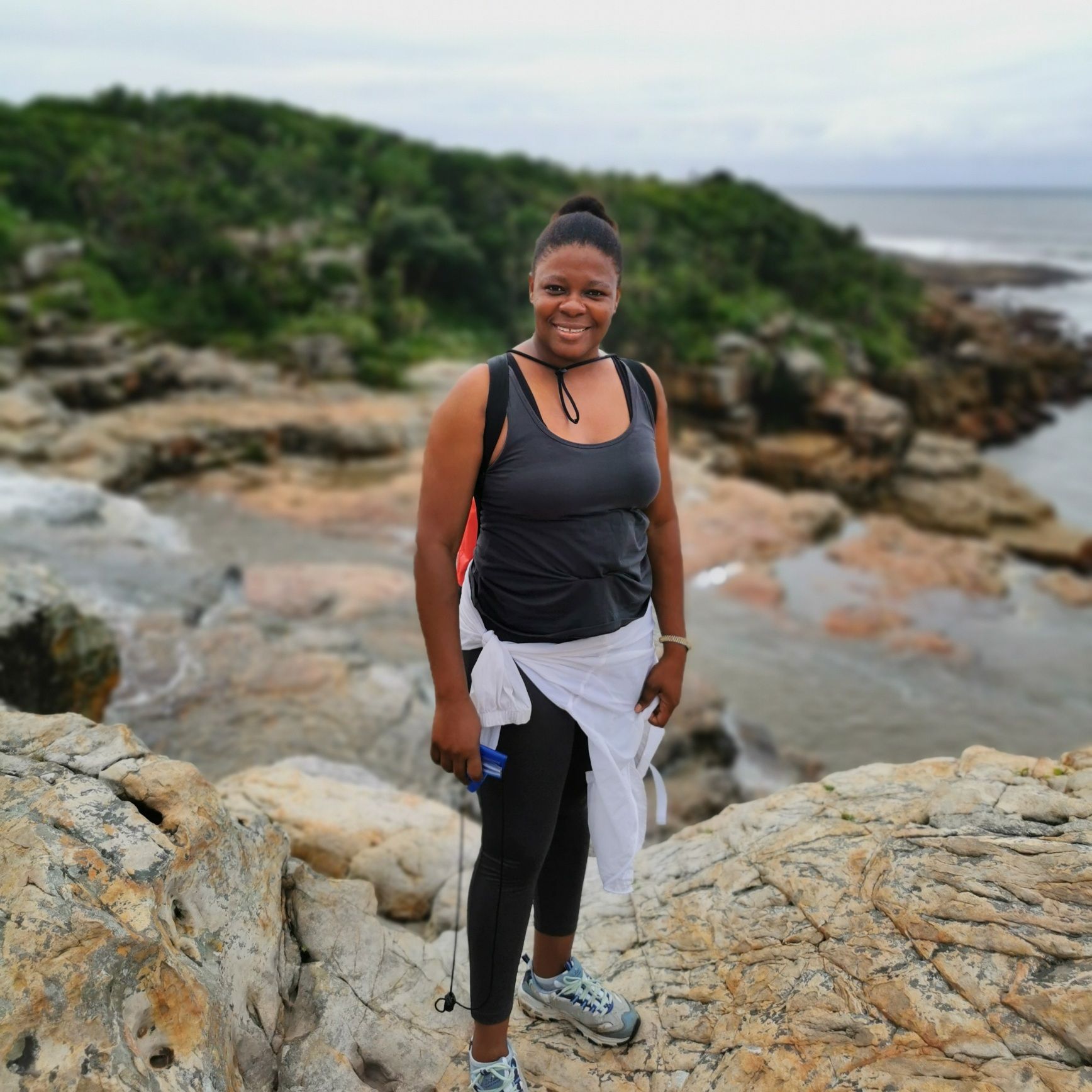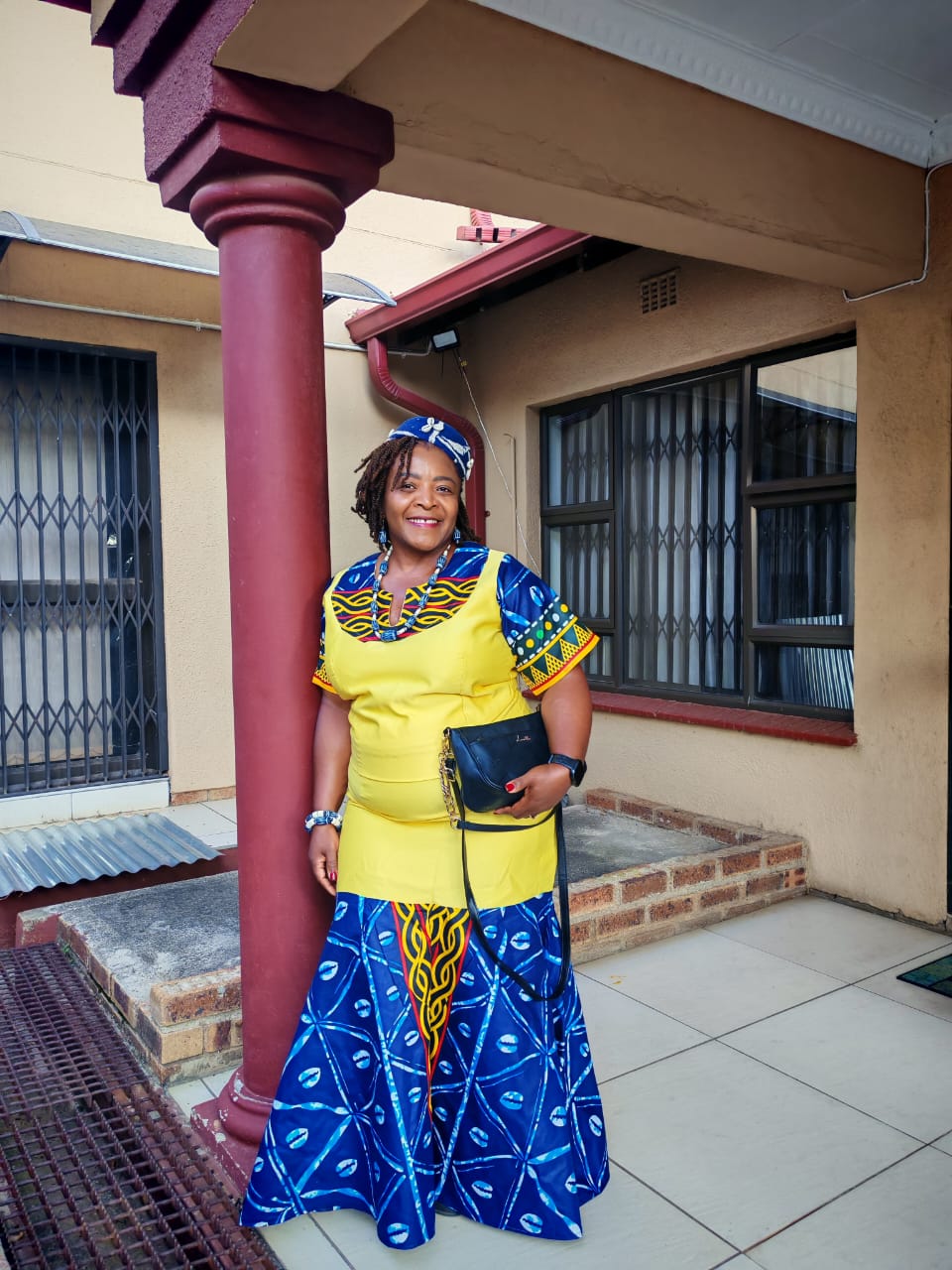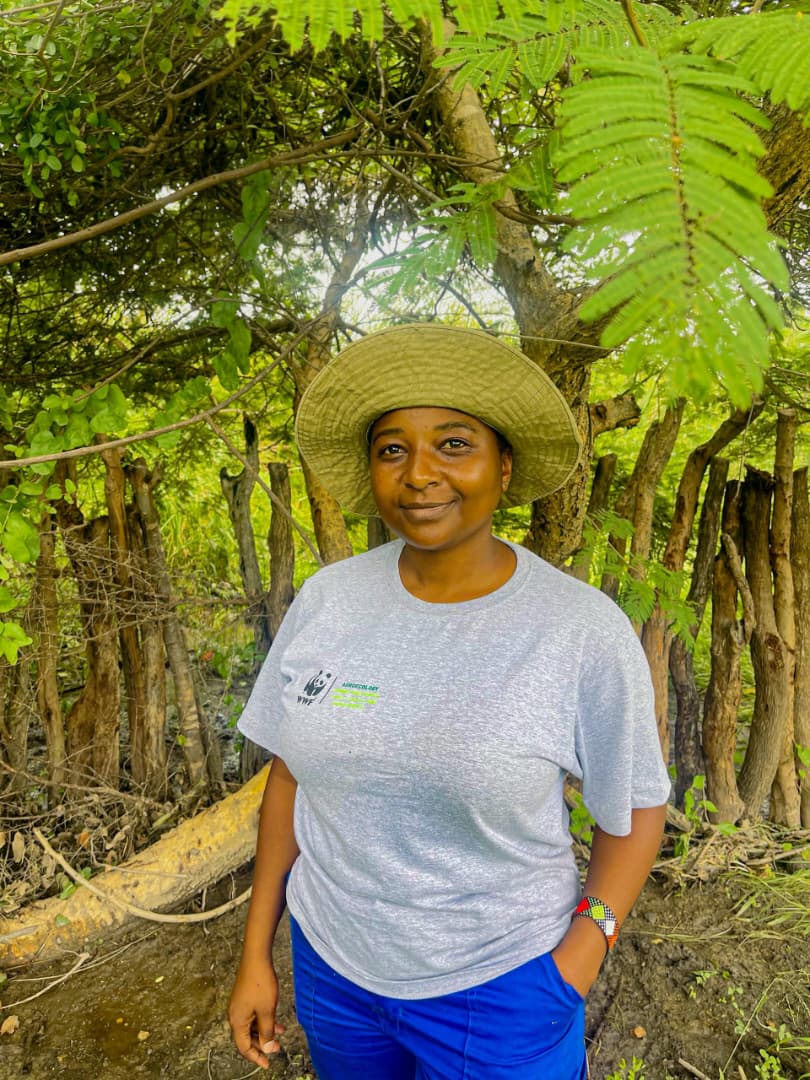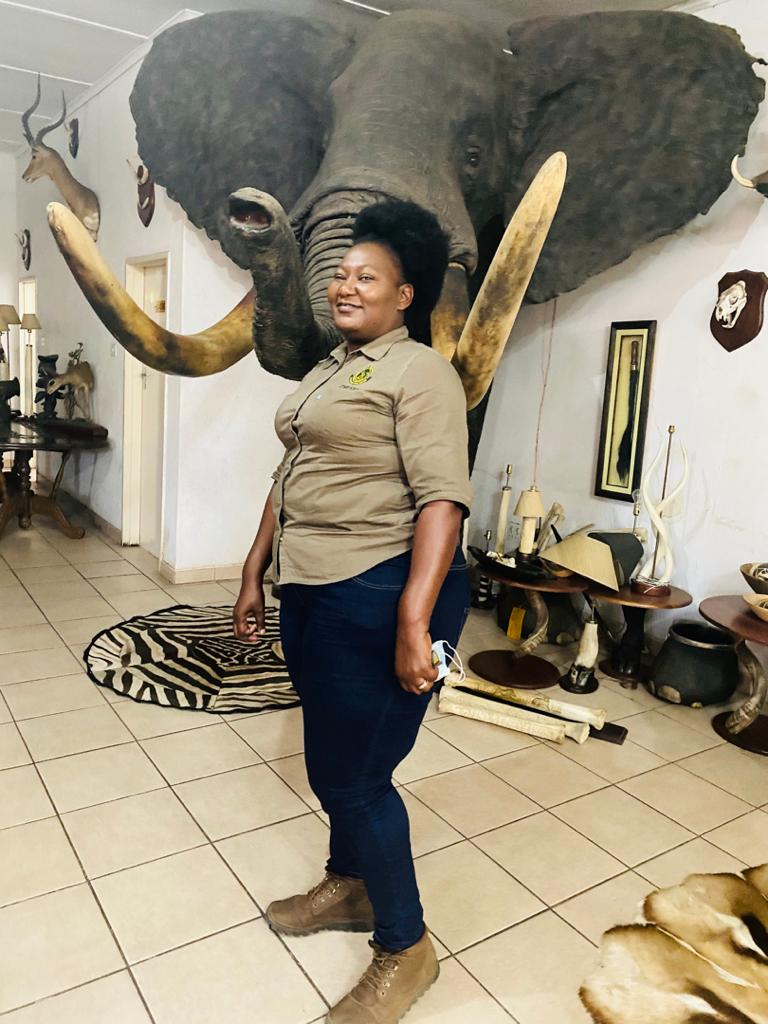The form asked for three options to be filled in. For Sylvanna Antat, those were two options too many. Without hesitation, she wrote Conservation as her first option. Then, just for the heck of it, she added Accounting and Nun as her second and third options. She hadn’t even studied accounting at A-levels, and the thought of spending her life in a habit was almost comical. These outlandish answers were, in fact, Sylvanna’s way of saying conservation was “it”. There was no plan B.

One teacher tried to dissuade her, “You can’t be a conservationist if you’re doing English Literature,” she said.
The moment that class ended, Sylvanna marched straight to the office where students could make subject changes, dropped English Literature and switched to History. Ironically, this subject was even further from conservation. But then again, this wasn’t about logic; it was about principle. “I didn’t want to be taught by someone who didn’t believe in me,” Sylvanna says.
Some would call this stubbornness; others, determination. Either way, Sylvanna is a woman who, once she knows what she wants, becomes unstoppable. And she’s been that way since she was a child. A case in point is when she absolutely refused to eat ‘wet foods’.
“Most Seychellois food comes in the form of curries and stews. I prefer dry foods; you know? Rice and fried eggs and such.”
Sylvanna made her preferences clear to her parents. They insisted that she couldn’t live on eggs and rice alone. So they tried to mix things up.
“You’re not going to bed until you eat this,” her mum would say after having placed a bowl of soup before Sylvanna.
“Fine, I won’t sleep then,” Sylvanna would say.
Night after night, the same standoff would unfold: a four-year-old Sylvanna on one side of the table, her parents on the other; both parties refusing to give in.
When I ask her how those situations were resolved, she says, “If I wasn’t going to sleep, they weren’t going to sleep either. Eventually, they’d just give up and let me go to bed.”
Sylvanna ‘won’. Not because she was a defiant child but because she knew what she wanted and what she didn’t, even at the age of four.
By the time she was choosing her career, Sylvanna’s determination muscle had been well exercised. There was no doubt in her mind that conservation was what she wanted. The question is, what made her so sure that this was the field for her in the first place?
“Part of what drew me to conservation was the idea that I wouldn’t have to deal with people all the time,” she says with a laugh. “I’m an introvert, and being around people can be really draining. Plus, I can be a bit stubborn and tend to call things as I see them, which doesn’t always make me the most popular person.”
Then her tone shifts, more thoughtful. “But the other reason I was determined to get into conservation was what you can potentially achieve. You have the incredible privilege of bringing about change that affects the entire planet. I don’t think it gets any bigger than that.”
***
On completing her A-levels, Sylvanna had earned the points she needed for a government scholarship to study abroad. Most students from Seychelles were sent to the UK. But Sylvanna didn’t want to go to the UK. “It was cold there,” she says.
So, she pushed back. Hard. “I told them I wasn’t going.” In the end, she won. Again.
The government agreed to send her to Australia. But because of that one decision, they had to send everyone else in her group to Australia too. “If one person got to go, then of course others would ask why,” she explains. “And for the government, it was easier to keep all the students at the same university.”
After earning her degree in environmental studies in Australia, Sylvanna returned to Seychelles and began volunteering at a local parastatal parks authority. Her dedication didn’t go unnoticed. Soon, they started giving her a small allowance for food and transport. Eventually, they offered her a full-time job.
“I started working in marine biology even though I didn’t actually study it,” she says with a grin. “Then I moved into coastal management, policies, strategies and capacity building.
She spent nearly ten years with that organisation before moving on to lecture at the University of Seychelles for a year. Later, she left the country to work in China and, in 2024, she decided to step away from formal employment to start her own consulting outfit.
Today, she continues to do this alongside co-chairing the Steering Committee of the Ocean Knowledge Action Network (OKAN) and serving as its Western Indian Ocean region Vice Chair.
***
What troubles Sylvanna most in her field of work is how new entrants are often treated. She speaks from experience.
When she first entered the field, Sylvanna didn’t have a degree in marine biology. Her studies had been in environmental science, but her first job was in marine biology. Coming in without a scientific background, there was a lot she didn't know.

“The people who came before us did so much good,” she says. “But when we came in, we didn’t have contact with them. We didn’t understand why they did what they did, or what kept them going. And because of that, I feel like we messed up a lot. If we’d understood better, we might have done things differently or at least built on what they started.”
In recent years, she’s noticed the same spirit of gatekeeping in the consultancy world. “There’s very little support for one another,” she says. “People are afraid to bring in others because they think, If I give her this project, she might excel and get the next one.”
That disconnect, she believes, has kept the cycle repeating and held back the critical work that needs to be done. “It feels like we’re always starting over because there’s no one to carry the torch. Either we never passed it on, or those who came after us never understood how it was lit, or what kept it burning. That’s why I’m so invested in young people. Because they’re the ones who will keep the flame alive.”
***
People often see Sylvanna as the kind of woman who walks into a room as if she owns it. What they don’t know, she admits, is how much she sometimes struggles with self-doubt.
The confidence people perceive, she explains, is often more determination than certainty. She recalls one of her biggest leaps of faith when she applied for a leadership position at the University of Seychelles.
She got the job but immediately felt out of her depth. “The closer it got to my start date, the more I panicked,” she recalls. “I remember thinking, I have no idea what I’m doing. This is too much responsibility. Maybe I shouldn’t show up. I even convinced myself I had enough money saved to take a few months off instead.”
Still, she got up, got dressed, and went to work.
“Every single day, I showed up scared,” she admits. “But the work we did was incredible. We got so much recognition, people wanted to collaborate with us.”
Despite the praise and success, the feeling of imposter syndrome never fully left her. “Every day, I was thinking, I hope I don’t mess this up,” she says. “But I never let that stop me. I could be shaking, but I’d still do it. Because if I say I’m going to do something, I will do it. Always.”
That’s the paradox of Sylvanna, courageous and composed on the outside, wrestling with fear on the inside.
The philosophy that has got her through it all is simple: “I believe that if it’s yours, it’s yours. If it’s not, it will never be.”
She remembers when she first worked at the university as a lecturer, under a director who often told her, “When I leave, I want you to take this position.” Sylvanna laughed it off at the time and eventually left for China. When she returned years later, she took over that very same position. “It was mine,” she says with a smile.
She’s seen the same pattern play out in other ways. “Sometimes there are projects that I think would be perfect for me, but I’ll see so many people applying, and I just don’t bother. Twice now, the person in charge has come to me later and said, ‘We weren’t happy with the applicants. Can you send us your application?’ And both times, I got the job.”
For Sylvanna, that’s proof enough.
“I’ve seen people fight so hard for things and they lose money, their reputation, or the opportunity itself,” she says. “So what’s the point in fighting? If it’s yours, you’ll get it. Even if you run away from it, it will follow you. That’s how I live, and that’s how I’ve always gotten the things that were meant for me.”
***
This interview is part of a series profiling the stories of the 2025 WE Africa leadership programme fellows. African women in the environmental conservation sector who are showing up with a strong back, a soft front, and a wild heart.
***
About Sylvanna Antat
Sylvanna Antat is a dedicated conservationist and researcher from Seychelles with extensive expertise in environmental leadership, marine science, climate resilience, and the Blue Economy. She holds an MPhil in Conservation Leadership from the University of Cambridge and has contributed significantly to environmental policy and education through various roles, including as Director of the James Michel Blue Economy Research Institute at the University of Seychelles. Sylvanna is also an Earthwatch alumna, an EDGE Fellow of the Zoological Society of London and a Mandela Washington Fellow, showcasing her commitment to advancing global conservation efforts. She is also the co-chair of the Ocean Knowledge Action Network (OKAN) Steering Committee, and spear headed the set up of the OKAN chapter in the Western Indian Ocean (WIO), vice chair of the Seychelles Environment Protection Appeals Board, the Western Indian Ocean Marine Science Association (WIOMSA) Country Coordinator for Seychelles, a member of the Gaea Conservation NGO, and chairman of the Complete Health Organisation interacting with Communities as educators (CHOiCe) NGO.





